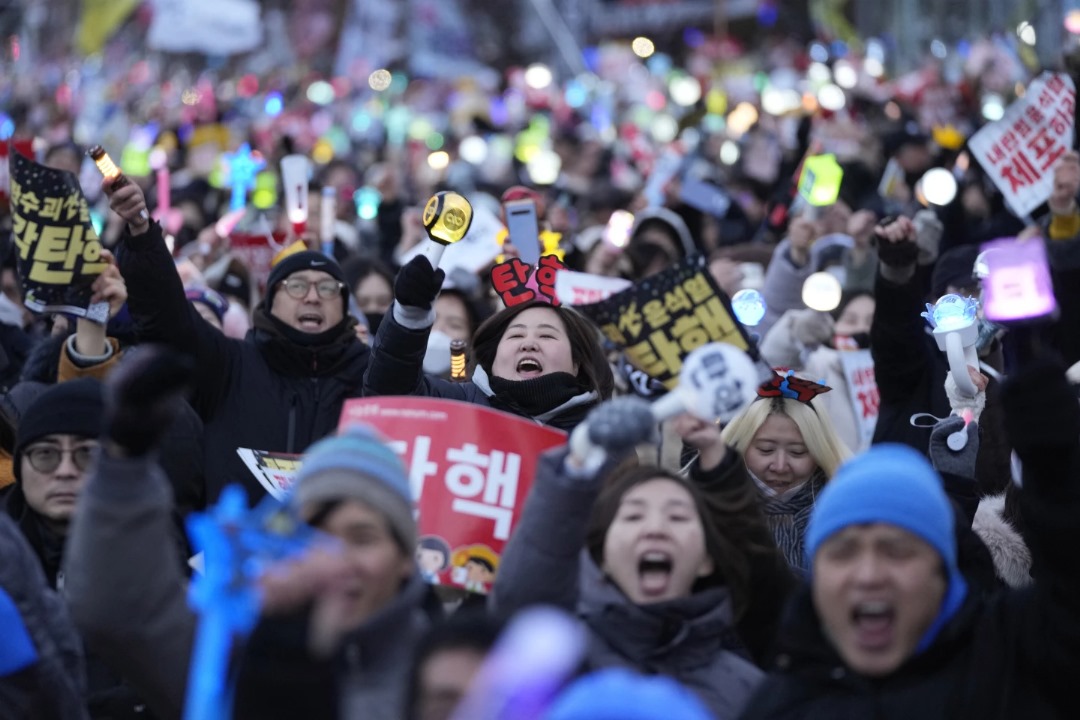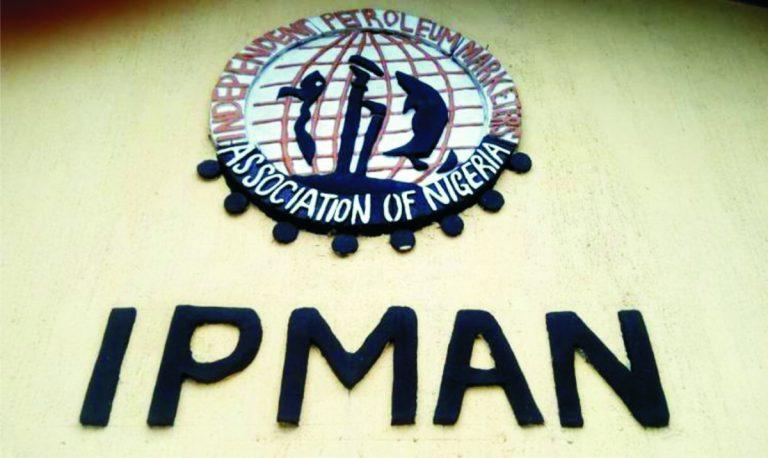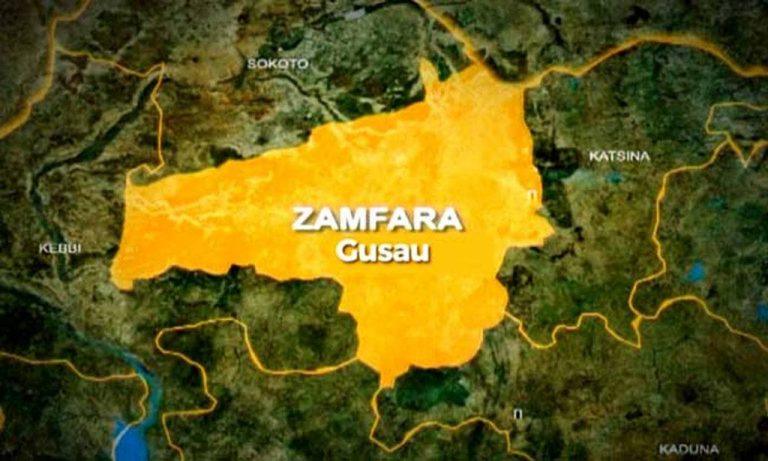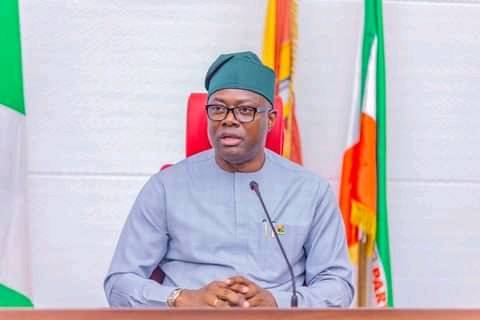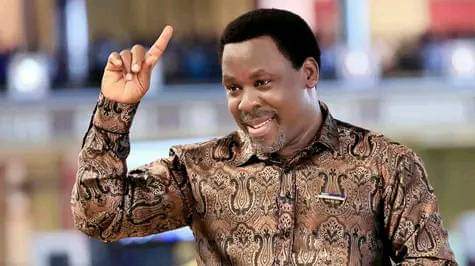The week that was: five global stories you need to catch up on
By: Daramola Luke with contributions from Saheed Muheez
As the world churns with relentless developments, last week delivered stories that continue to shape global conversations. From Syria’s shifting political landscape to South Korea’s unfolding political drama, here’s a curated roundup of five most consequential stories making news headlines.
1. Assad flees Syria as regime collapses, seeks asylum in Moscow
2. Biden commutes over 1,500 sentences, pardons 39 individuals in historic clemency action
3. Beijing signals interest in improving bilateral ties with Washington as Trump’s return looms
4. Francois Bayrou replaces Michel Barnier as new French PM, braces for task ahead
5. South Korean parliament votes in favour of Yeol’s impeachment, PM Han Duck-soo takes over
Let’s dive deep;
1 – Assad flees Syria as regime collapses, seeks asylum in Moscow
On the morning of December 8, rebel troops fighting against the Syrian Government began to press the final advance towards the Syrian capital, Damascus, and by afternoon, they had gained control of the capital as the weakened pro-government forces surrendered. This event marked the definitive end of the Assad family’s five-decade rule in Syria. Bashar al-Assad administered Damascus from 2001 until his ouster, following the nearly 30-year reign of his father, Hafez al-Assad.
Bashar al-Assad’s 24-year rule was plagued by corruption and a series of human rights violations with a spate of purges against political rivals and activists. His economic programmes proved to be a disaster stroke as there were allegations of inequalities and alienation of citizens and followers. His regime was widely characterised as a personalist dictatorship that operated as a totalitarian police state with pervasive control over Syrian society.
As the rebel forces December 8 gained ground in Damascus, Homs, Hama, and elsewhere President Assad fled Damascus to Moscow, where he was welcomed by the Kremlin and granted asylum sealing the fall of the Syrian Arab Republic.
2 – Biden commutes over 1,500 sentences, pardons 39 individuals in historic clemency action
Outgoing American President, Joe Biden pardoned 39 people and reduced the sentences of over 1,500 people December 12 in a move that followed his bold decision to pardon his son, Hunter Biden, who was set to be sentenced for gun and tax convictions. The huge number of pardons are billed as setting the new single-day record for the number of people granted presidential pardon by the Oval Office.
The Biden administration has faced persistent criticism for not keeping pace with the clemency records of previous presidents. With just a month remaining in his term, Biden’s record stood at 26 pardons and 135 sentence commutations—numbers significantly lower than those of his predecessors. While the recent clemency efforts primarily benefited nonviolent offenders, pressure mounts for him to take more decisive action as the clock ticks down on his tenure as America’s number one citizen.
3 – Beijing signals interest in improving bilateral ties with Washington as Trump’s return looms
China and the United States December 13 announced the renewal of their bilateral agreement on science and technology cooperation through official channels on both sides. The Science and Technology Agreement (STA), first signed in 1979, marked a historic milestone as the initial formal agreement between China and the US following the normalisation of diplomatic relations. It had historically been renewed roughly every five years. However, in recent times, US lawmakers have raised concerns about the deal as China’s rapid ascent as an industrial and tech powerhouse threatens the US.
This development comes amid fears of potential confrontations between the two world powers over tariffs on American exports like semiconductor chips and others even as Trump is set to make a return to the White House.
4 – Francois Bayrou replaces Michel Barnier as new French PM, braces for task ahead
France’s President Emmanuel Macron December 13 announced Francois Bayrou as the new French Premier, following a historic no-confidence vote that ousted Michel Barnier from the role due to economic turmoil. Centrist-oriented Francois Bayrou becomes Macron’s fourth Prime Minister since the year began and his sixth PM overall. The announcement came after an almost two-hour discussion between Macron and Bayrou at the Matignon, the official residence of French Prime Ministers.
Francois Bayrou inherits the herculean task of uniting a highly divisive parliament and fast-tracking the progress of the 2025 budget to soothe the economic crisis battling Paris, an uneasy one, especially after the reactions of far-right politician, Marine Le Pen of the National Rally Party and other parties indicated a new deadlock might emerge if he failed where his predecessor, Barnier stumbled.
5 – South Korean parliament votes in favour of Yeol’s impeachment, PM Han Duck-soo takes over
South Korea’s political unrest took another turn this week as the rift between the presidency and the parliament deepened, even as thousands of protesters continued their demonstrations against the leadership of President Yoon Suk-yeol. The parliament had moved to impeach the president December 4 after the martial law debacle but failed to get the required two-thirds of the votes. However, as the protesters took to the streets to continue their objection, the parliament re-convened December 14 to vote on Yoon’s impeachment. This time, the motion was successful. 204 of the 300 MPs voted in favour of impeaching President Yoon.
Prime Minister Han Duck-soo will now temporarily take over presidential duties before South Korea’s Constitutional Court makes the final decision either confirming Yoon’s impeachment or declaring it unconstitutional.

